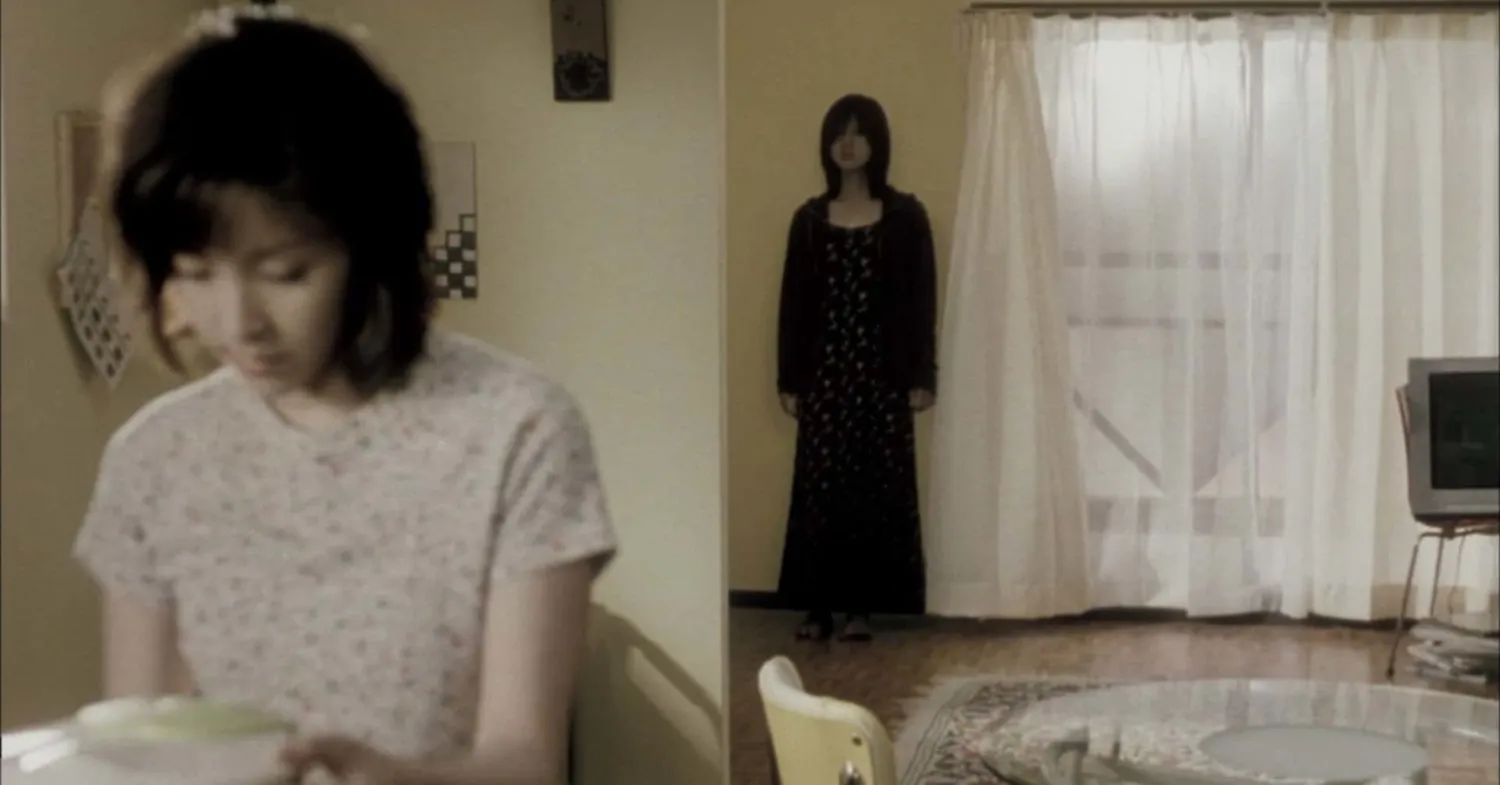Kiyoshi Kurosawa‘s Pulse feels as though its the little brother to Cure, his cult hit now hailed as a classic decades later. Pulse carries with it that same eerie, atmospheric energy that serves to envelop you and disturb you. There isn’t much to Pulse that is out and out terrifying as it moves at its own mundane pace and rarely relies in sonic cues to make its impact. Instead, Pulse works almost entirely because of Kurosawa’s offbeat pacing and intricate combination of editing and shot selection.

This is to say that much like Kurosawa’s other horror films, from Cure to 2024’s Chime, there’s almost nothing like Pulse. Kurosawa moves to the beat of his own drum, building beguiling, frightening atmosphere as well as any director that’s ever operated in the horror genre. It’s both calculated and ambiguous. And although the ghostly images and surreal story is often hard to follow, there’s enough scenery to chew on to keep you invested.
Pulse follows two parallel storylines that eventually converge in the third act. The first storyline surrounds Michi (played by Kumiko Asō), who has recently moved to Tokyo and works at a plant shop with Junko, Yabe, and Taguchi. Strange events occur that begin leaving Michi’s coworkers disassociated from reality, and in extreme cases, committing suicide by following the directions of the spirits following them.
They communicate with the afterlife through the computers and phones that surround them. The modern tech age was the spawn of many horror movies in the late 1990s and early 2000s. Movies like Pulse and Ring were fables that capitalized on society’s worries that technology would only cause civilians to detach from one another. In a way, Kiyoshi Kurosawa’s psychological horror film is well ahead of its time, as many of the warnings he conveys here have come to fruition in the years since.
The second plotline follows Ryosuke Kawashima (played by Haruhiko Kato), an economics student who tries to capture proof of these spirits through the computer screens they communicate with him through. He storyline works with Michi’s to show that the supernatural events taking place are not tied to an individual, and that they are instead worldwide events brought on by the rise of loneliness being brought into society.
Pulse works because it suggests its own nightmarish reality rather than showing it. The terror lies in both what you see and what you don’t see. It’s quite Lynchian in its approach as the surrealist imagery and mundane pacing operates in a unique way with its story. Kiyoshi Kurosawa is one of the great horror directors to ever live, and if you need a couple examples of what makes him so unique, Cure and Pulse are such a succinct, idiosyncratic double-feature that’ll get your heart pounding.
Score: 8/10
Pulse (2001)
- Cast: Haruhiko Kato, Kumiko Aso, Koyuki, Kurume Arisaka, Masatoshi Matsuo
- Director: Kiyoshi Kurosawa
- Genre: Horror, Mystery, Thriller
- Runtime: 119 minutes
- Rated: R
- Release Date: February 3, 2001
More Reviews for Japanese Horror (J-Horror) Movies from Cinephile Corner
Cinephile Corner has reviewed the following J-Horror movies:
- Onibaba (1965)
- Ring (1998)
- Pulse (2001)
- Ju-on: The Grudge (2002)
- Chime (2024)
More Movies Directed by Kiyoshi Kurosawa
Kiyoshi Kurosawa has directed the following movies:
- Cure (1997)
- Pulse (2001)
- Retribution (2006)
- Tokyo Sonata (2008)
- Creepy (2016)
- Chime (2024)